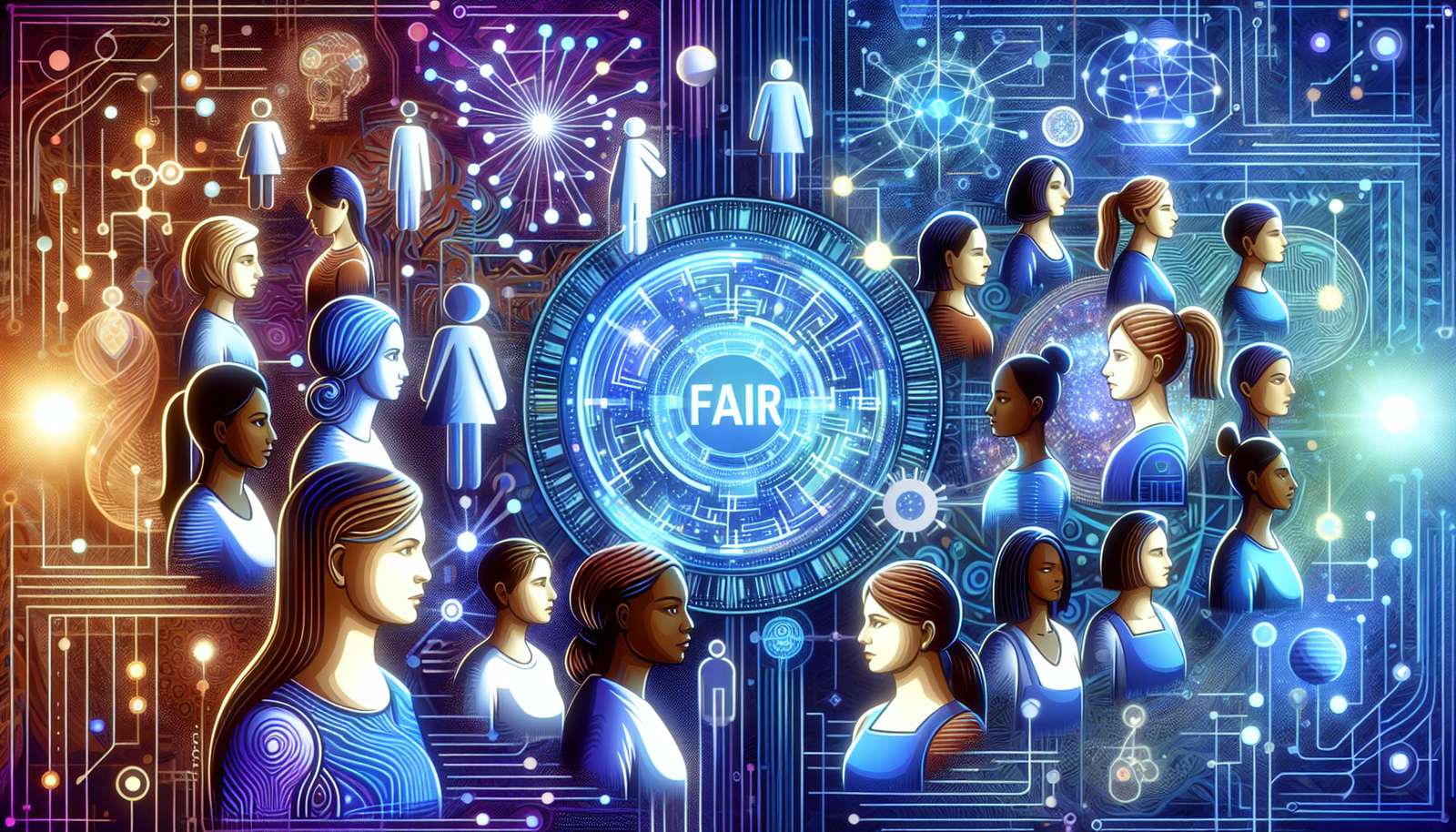Algorithmic biases undermine societal fairness. The lack of female representation in the field of artificial intelligence represents an alarming gap. An AI that ignores female voices perpetuates stereotypes. Gender disparities in development teams fuel a vicious cycle of marginalization. Promoting gender parity at the heart of AI leads to innovative solutions. This dynamic enriches the field of AI and combats preexisting biases. Integrating female perspectives is not just an ethical necessity but a strategic imperative.
The need for female representation in AI
The presence of women in the field of artificial intelligence (AI) represents a major societal issue. Currently, women are underrepresented, particularly in the technical and scientific sectors of technology companies. In 2018, only 10% of the workforce in technical positions at giants like Google and Facebook consisted of women. This gap exacerbates algorithmic biases and leads to programmed injustices within AI systems.
Algorithmic biases: a reflection of gender inequalities
Algorithmic biases often stem from incomplete or inequitable data, thus reproducing the discrimination present in society. These inequalities do not only affect women; they also have repercussions on the perception of minorities and marginalized groups. The lack of diversity within development teams hinders the creation of equitable and inclusive solutions.
Initiatives for a more equitable AI
The “Equality in AI Month,” established in June 2021, gathered various stakeholders, including associations, companies, and training organizations. These roundtables aim to promote inclusivity in AI design and encourage everyone to share their experiences. This collective movement aspires to establish best practices to ensure not only equitable representation but also AI development aligned with social equity values.
Best practices for promoting equality in AI
Industry stakeholders emphasize the importance of establishing concrete actions on a national scale to positively influence the future of AI. AI development should be accompanied by initiatives that promote inclusivity. A rigorous assessment of the data used to train AI systems represents an essential first step in minimizing gender biases related to the use of these technologies.
The role of youth in transforming perceptions
Youth, often a driver of change, plays a prominent role in transforming perceptions on equality issues. Young elected officials share their vision of the importance of AI in promoting gender equality and fostering civic engagement. By adopting these new technologies, they become vectors of reform, steering their aspirations toward a less unequal society.
Future challenges: an AI tested against equity
By 2025, the emergence of new technologies, including advanced 5G, poses unique challenges for integrating AI into the professional world. Female perspectives within these developments must be considered to ensure sustainable and equitable evolution. AI must be designed with an equity perspective, integrating the visions and specific needs of women to avoid discriminatory drift.
A call to action: feminizing AI
The feminization of AI is not merely an issue of parity; it also involves a reassessment of traditional representations. Voice assistants, for example, raise questions about the inherent gender in their design. The recognition of female and male voices in virtual assistants calls for deeper reflection on the stereotypes perpetuated by these technologies. These strategic questions must occupy a central place in contemporary debates on AI.
An equitable future through inclusion
The pathways to a truly equitable AI require active involvement from all stakeholders. Initiatives such as contests to celebrate female contributions, like the Miss AI contest, raise questions about standards of beauty but also advocate for increased inclusivity. Collaborative events and dedicated forums are multiplying to engage discussions regarding the sustainability and ethics of AI.
For exemplary Artificial Intelligence, the representation of women in development teams is not just a numbers issue, but a genuine necessity. It is only through this diversity that AI can truly serve the interests of society as a whole. An inclusive and deliberate writing style can strengthen gender equality in AI.
Frequently Asked Questions
Why is it essential to have women in the development of artificial intelligence?
The presence of women in the development of artificial intelligence helps to reduce algorithmic biases related to gender and promotes a more inclusive AI, respecting the needs and perspectives of users from all backgrounds.
How do gender biases manifest in artificial intelligence systems?
Gender biases in AI systems translate into inequitable representations in the data used, leading to systems that disadvantage certain groups and reinforce existing stereotypes.
What are the best practices to promote gender equality in AI?
Best practices include diversifying development teams, regularly assessing the used data, and integrating gender equality from the beginning of the design process for AI systems.
What role can women play in innovation in artificial intelligence?
Women bring unique perspectives and a wide range of experiences that enrich innovation in artificial intelligence, contributing to more balanced and representative solutions.
What are the impacts of insufficient female representation in the AI sector?
Insufficient female representation can lead to programmed injustices and AI systems that do not take into account the needs of a significant portion of the population, thus reinforcing existing biases.
How can we raise awareness of the importance of gender equality in AI?
Awareness can be raised through educational initiatives, events like the “Equality in AI Month,” and by promoting female role models in the technology field.
What success stories or initiatives exist to integrate women into AI?
There are several successful initiatives such as mentorship groups, scholarship programs specifically for women in STEM, and forums that gather female experts to discuss challenges and opportunities in the sector.
What is the current state of female representation in AI companies?
Despite progress, women remain underrepresented in the AI sector, occupying about 10% of technical and scientific positions in leading companies.
What measures can companies take to improve gender parity in AI?
Companies can commit to adopting a proactive recruitment policy aimed at attracting female talent, implement training on inherent biases, and promote pay parity.






